Considering employing someone in New Zealand? Here is a guide to employee rights in New Zealand to help you understand what you need to comply with. A key topic is the set of local employee rights a worker residing in New Zealand is entitled to.
When it comes to international employment, you have two compliant options. Partner with an Employer of Record (EOR) and rely on their expertise and infrastructure OR set up and run your own local entities and take all responsibilities in-house.
Employing abroad is hard. Doing it successfully requires a detailed understanding of local regulations and expectations. It also requires the creation of payroll and tax processing systems that can accommodate regional variations. And it needs to do all of that at scale.
If you don't have the right local expertise, robust payroll processing, and reliable legal help, then you will find yourself in complex employment situations.
Here, we’ll explore why effectively managing your international employment in-house is easier said than done and dig into the value that the right EOR can provide to help.
We understand why you would want to take your global employee management in-house in the first place. You might believe that doing so will allow for:
This perspective overlooks the intricate web of legal, tax, and operational challenges that come with employing staff across different jurisdictions. More specifically:
When the above aren’t addressed properly, you risk not solving important issues like different HR regulations in various localities, changes in local legislation, and forming contracts in local languages. These are scenarios that are complex and difficult to navigate without any external support — especially when you’re dealing with a large number of workers and regions.
Increasing your in-house workforce and expertise to adjust to demand isn’t the answer either. The number of both employees and complex international employment scenarios you’ll have to address will only grow — and at a rate that cannot be tracked easily or effectively.
The best solution is to rely on an EOR that has a robust level of both expertise and experience to help you scale your employment needs. Let’s examine why.
An EOR acts as the legal employer for workers in certain countries, owning the compliance with local employment laws, tax codes, and other regulatory requirements. An EOR will run your payroll, will provide the local employment contracts, and wil file the taxes at the end of the month.
Beyond that, the EOR will bring a level of expertise and resources that, in the long run, are truly invaluable. The right EOR will bring the experience required to address complex international employment issues and offer support when you need it.
The central challenge that businesses face with in-house international employment is regional variation and how that impacts the scale of the team required to manage that. To compliantly employ abroad, you need local experts in local employment law, taxes, and payroll regulations, and support teams available to handle any challenges. At a minimum, that’s three or four specialists per region.
If you’re only employing a handful of individuals in a region, the costs of employing them plus investing in local legal help just don’t add up. Our clients have found that it’s not until you have 100+ people employed in a region that the investment may start to make sense. And what happens when you want to expand to another region?
Truly great EORs act as real partners to your business, providing support for unique situations that arise and going above and beyond to offer you personalised guidance.
Let’s look at one of our clients, Next 15, as an example of a business that needed a detailed understanding of the various regional requirements where they employ people.
Like any EOR, we provide in-depth country guides for on-demand regional guidance. However, there have been a few unique and complex challenges Next 15 have faced that our country guides alone wouldn’t have been able to solve.
Our team was on-call to provide detailed advice to Next 15 for unique and complex challenges. Here are two specific scenarios:
Now, picture facing these sorts of problems in your own business. Would you likely have the resources to manage these issues internally?
The answer is probably not. Access to experts not only minimises these risks but also provides a level of support and guidance that ensures your international expansion is both smooth and efficient.
With that said, remember that not all EORs are made alike. You want to ensure you’re choosing one that is both reputable and truly works with your business, knowing when to guide you towards another option and/or develop a custom solution to fit your needs.
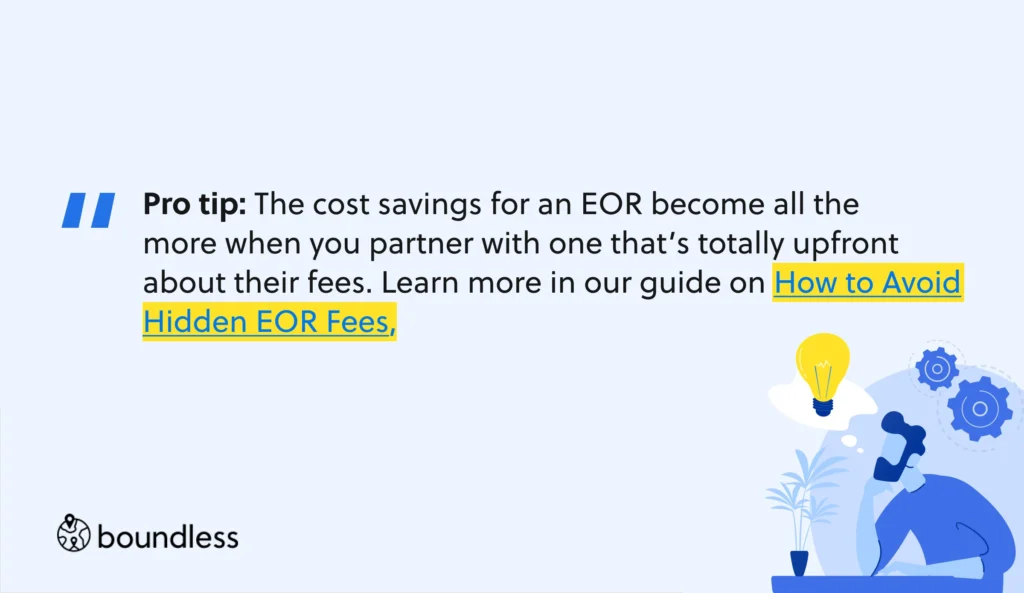
Here, we’ve outlined the differences in costs and ROI you receive from managing your international employment in-house versus when partnering with an EOR.
Leaving global employment management to your HR team (or a newly created internal function) involves several direct and indirect costs:
There are going to be upfront as well as long-term costs you’ll have to pay for when partnering with an EOR. And these can vary, depending on the provider you choose. Some EORs may charge a flat fee, a percentage of the salaries of each employee they’re managing, or a combination of both.
In addition, there may be some hidden fees that only appear once you are working with the EOR. It can take time to fully quantify the kind of support you need from an EOR, and unexpected costs can arise.
With that said, if you partner with an EOR that offers clear-cut pricing and can reliably deliver you the expert guidance you need, then all the above costs become well worth the investment. The right EOR understands and compliantly addresses international employment every day, providing you access to an economy of scale that delivers:
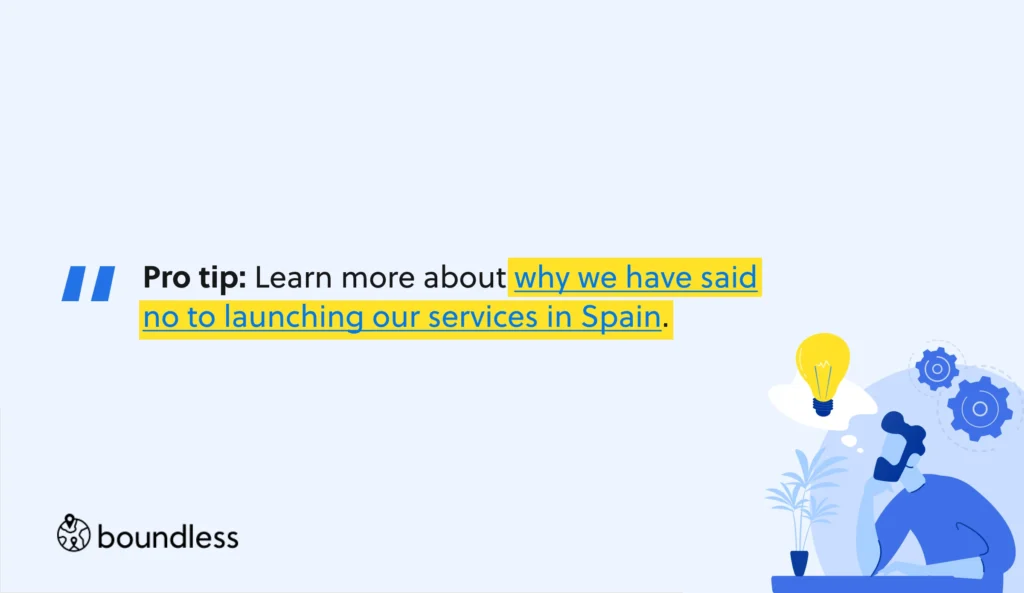
Compliance and efficiency are crucial to granting you success in your global employee management. With the right EOR, international employment doesn’t have to be hard — it can simply help your business grow.
If you have any questions about what partnering with an EOR looks like (or would just like a chat), feel free to book a call with us!
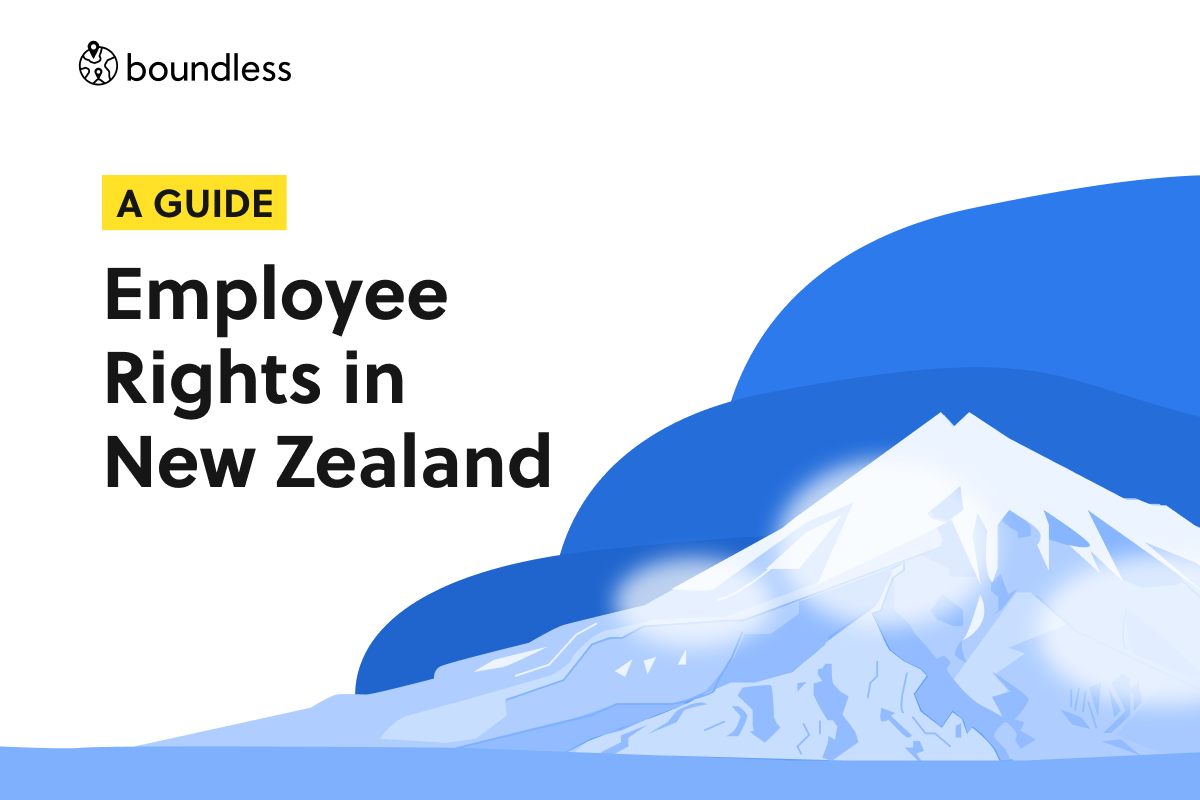
Considering employing someone in New Zealand? Here is a guide to employee rights in New Zealand to help you understand what you need to comply with. A key topic is the set of local employee rights a worker residing in New Zealand is entitled to.
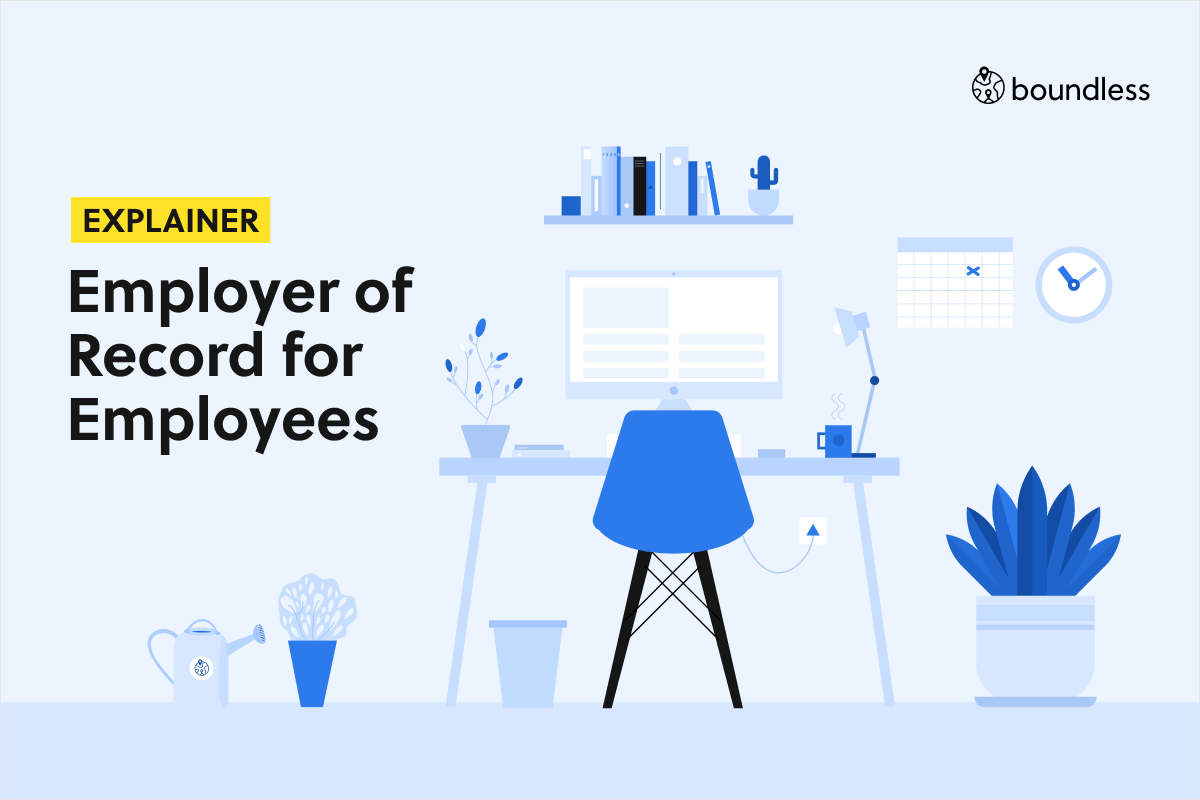
To employees, employment may seem relatively straightforward at the front end - sign a contract, get paid once a month, receive a payslip, take some time off when needed. Managing the back end is where the complexity begins.
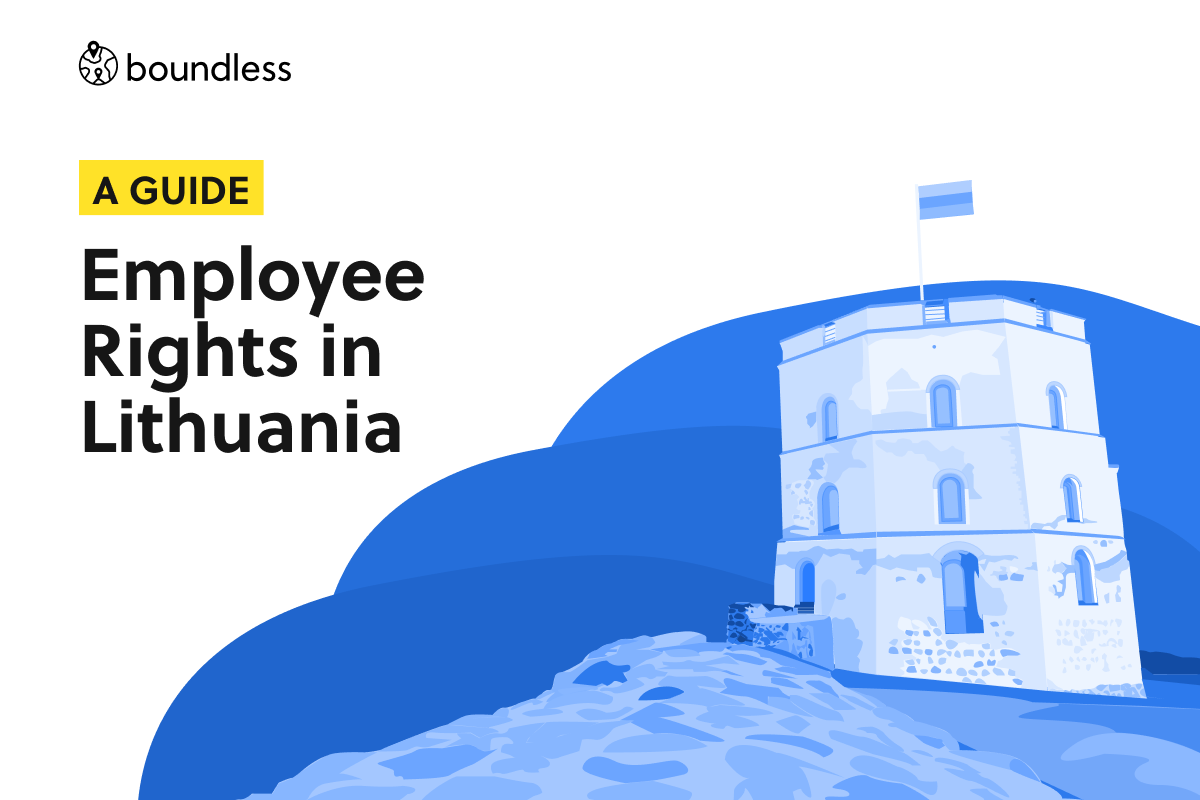
Considering employing someone in Lithuania? Check out our guide to employee rights to understand what you need to comply with as an employer.

In this post, we explain in detail what an Employer of Record is and what to expect from such a service provider. Firstly, however, it’s important to understand what employment itself means.
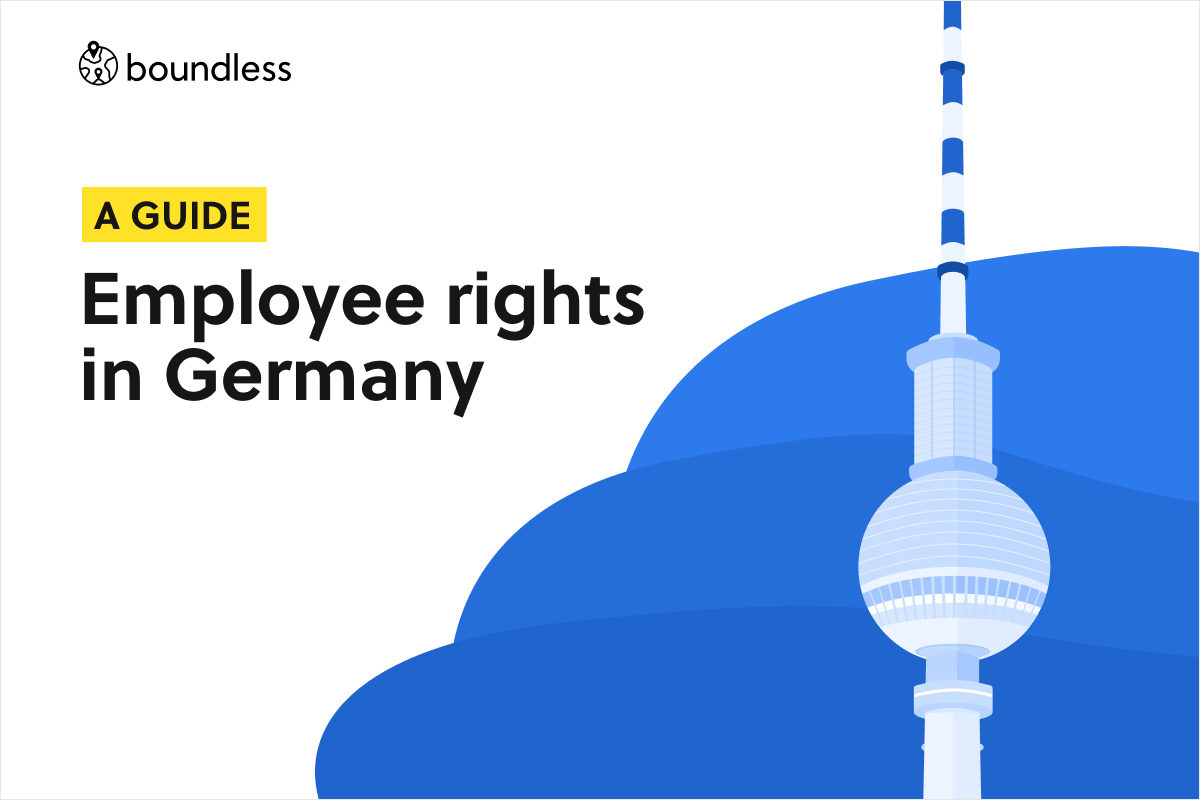
Compliant employment comes with a lot of obligations you have to be on top of. When you are doing that in a foreign country, everything will be brand new and you will have a lot of learning to do. Here is a guide to employee rights in Germany to help you understand what you need to comply with.

Considering employing someone in Australia? To do that compliantly, an employer has a lot of obligations they have to fulfil. One area is the set of local employee rights a remote worker in Australia is entitled to, especially if they fall under Modern Awards.